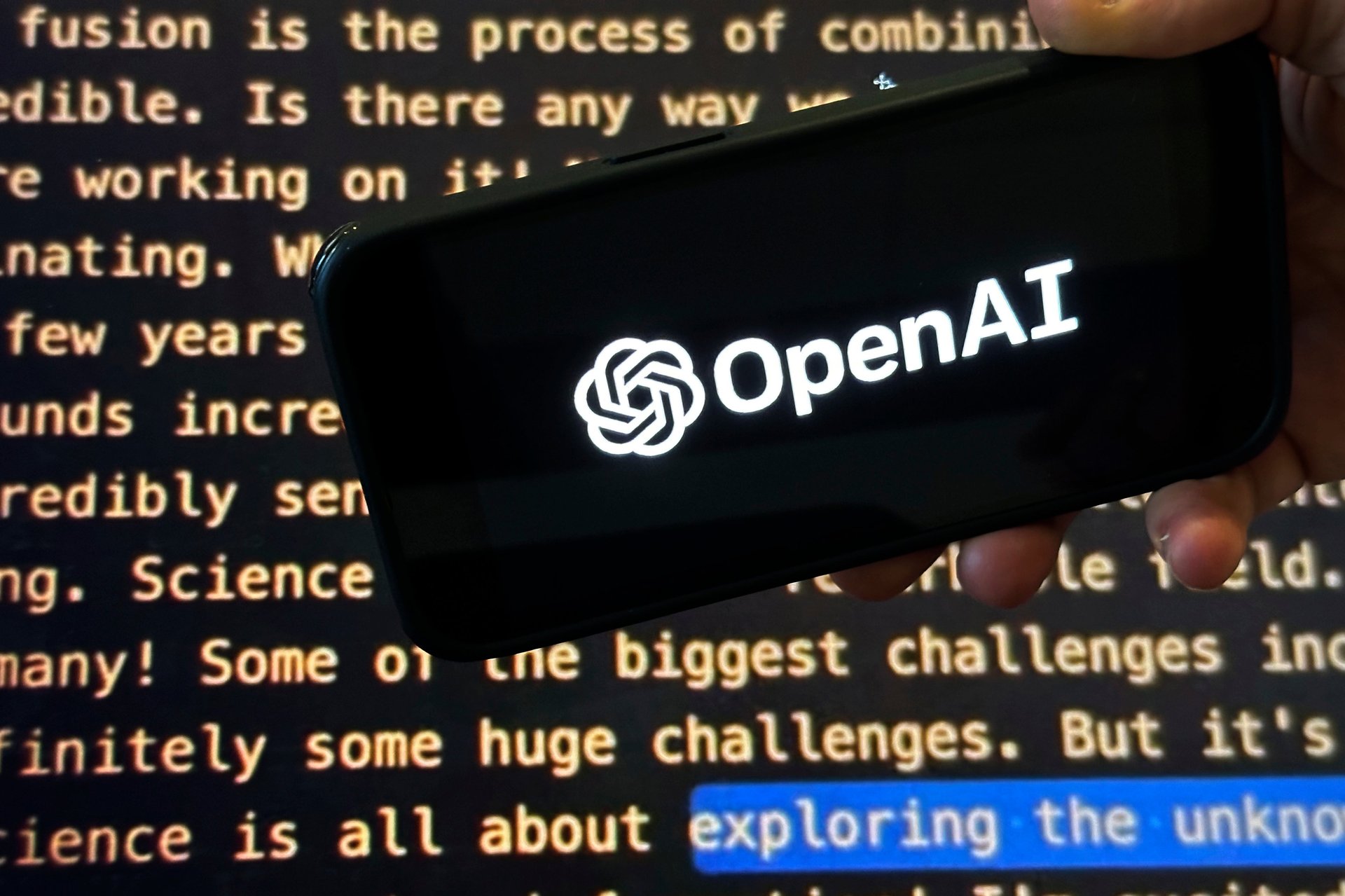What does Sam Altman's firing — and quick reinstatement — mean for the future of AI?
It’s been quite a week for ChatGPT-maker OpenAI — and co-founder Sam Altman

NEW YORK (AP) — It's been quite a week for ChatGPT-maker OpenAI — and co-founder Sam Altman.
Suggested Reading
Altman, who helped start OpenAI as a nonprofit research lab back in 2015, was removed as CEO Friday in a sudden and mostly unexplained exit that stunned the industry. And while his chief executive title was swiftly reinstated just days later, a lot of questions are still up in the air.
Related Content
If you're just catching up on the OpenAI saga and what's at stake for the artificial intelligence space as a whole, you've come to the right place. Here's a rundown of what you need to know.
Altman is co-founder of OpenAI, the San Francisco-based company behind ChatGPT (yes, the chatbot that's seemingly everywhere today — from schools to health care ).
The explosion of ChatGPT since its arrival one year ago propelled Altman into the spotlight of the rapid commercialization of generative AI — which can produce novel imagery, passages of text and other media. And as he became Silicon Valley’s most sought-after voice on the promise and potential dangers of this technology, Altman helped transform OpenAI into a world-renowned startup.
But his position at OpenAI hit some rocky turns in a whirlwind that was the past week. Altman was fired as CEO Friday — and days later, he was back on the job with a new board of directors.
Within that time, Microsoft, which has invested billions of dollars in OpenAI and has rights to its existing technology, helped drive Altman's return, quickly hiring him as well as another OpenAI co-founder and former president, Greg Brockman, who quit in protest after the CEO's ousting. Meanwhile, hundreds of OpenAI employees threatened to resign.
Both Altman and Brockman celebrated their returns to the company in posts on X, the platform formerly known as Twitter, early Wednesday.
There's a lot that remains unknown about Altman's initial ousting. Friday's announcement said he was “not consistently candid in his communications” with the then-board of directors, which refused to provide more specific details.
Regardless, the news sent shockwaves throughout the AI world — and, because OpenAI and Altman are such leading players in this space, may raise trust concerns around a burgeoning technology that many people still have questions about.
“The OpenAI episode shows how fragile the AI ecosystem is right now, including addressing AI’s risks,” said Johann Laux, an expert at the Oxford Internet Institute focusing on human oversight of artificial intelligence.
The turmoil also accentuated the differences between Altman and members of the company’s previous board, who have expressed various views on the safety risks posed by AI as the technology advances.
Multiple experts add that this drama highlights how it should be governments — and not big tech companies — that should be calling the shots on AI regulation, particularly for fast-evolving technologies like generative AI.
“The events of the last few days have not only jeopardized OpenAI’s attempt to introduce more ethical corporate governance in the management of their company, but it also shows that corporate governance alone, even when well-intended, can easily end up cannibalized by other corporate’s dynamics and interests,” said Enza Iannopollo, principal analyst at Forrester.
The lesson, Iannopollo said, is that companies can’t alone deliver the level of safety and trust in AI that society needs. “Rules and guardrails, designed with companies and enforced by regulators with rigor, are crucial if we are to benefit from AI,” he added.
Unlike traditional AI, which processes data and completes tasks using predetermined rules, generative AI (including chatbots like ChatGPT) can create something new.
Tech companies are still leading the show when it comes to governing AI and its risks, while governments around the world work to catch up.
In the European Union, negotiators are putting the final touches on what’s expected to be the world’s first comprehensive AI regulations. But they’ve reportedly been bogged down over whether and how to include the most contentious and revolutionary AI products, the commercialized large-language models that underpin generative AI systems including ChatGPT.
Chatbots were barely mentioned when Brussels first laid out its initial draft legislation in 2021, which focused on AI with specific uses. But officials have been racing to figure out how to incorporate these systems, also known as foundation models, into the final version.
Meanwhile, in the U.S., President Joe Biden signed an ambitious executive order last month seeking to balance the needs of cutting-edge technology companies with national security and consumer rights.
The order — which will likely need to be augmented by congressional action — is an initial step that is meant to ensure that AI is trustworthy and helpful, rather than deceptive and destructive. It seeks to steer how AI is developed so that companies can profit without putting public safety in jeopardy.
